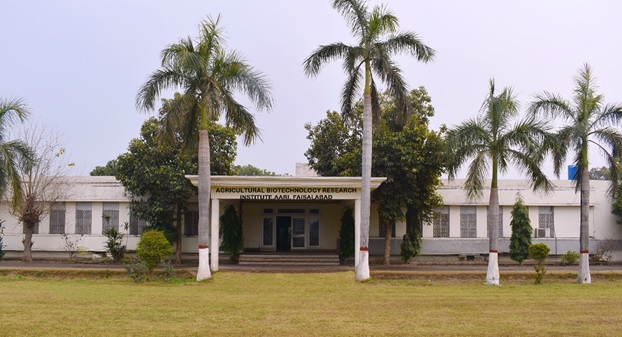Biotechnology is a technology which is use to improve genetic architecture of biological life for the benefit of mankind. Plant biotechnology is a plant breeding technique use for changing and improving the crop plants. It increases precision in selection and identification of biological efficient allelic combinations in controlled mating breeding which is based on information at molecular level. By utilizing this technique scientists have developed solutions to increase agricultural productivity on sustainable basis. Starting from the ability to identify specific genes that may confer advantages on certain crops, and the ability to work with such characteristics very precisely, biotechnology enhances breeders’ ability to make improvements in crops. Biotechnology enables crop improvements that are not possible with traditional crossing of related species alone.

Mission
Keeping in view the benefits of biotechnological techniques Agri. Biotechnology Research Institute was established in December, 1987. Presently research work on many crops including cereals, fiber crops, sugarcane, fodders, oilseeds, pulses and vegetables is being carried out on different aspects like development of transgenic plants, testing of biotech crops, DNA marker assisted breeding, production of better somaclones, disease free seed multiplication etc. This institute also deals with beneficial microbes which exert positive effects on plant growth through BNF, P-solubilization and producing growth hormones for restoration of soil fertility.
Objectives
- Genetic engineering
- DNA marker assisted selection to accelerate breeding programme
- Detection, identification and quantification of Biotech crops
- Exploitation of somaclonal variation against biotic and abiotic stresses
- Disease free seed multiplication through micro-propagation
- Symbiotic N Fixation, isolation and selection of efficient strains of Rhizobium
- PGPR-crop (plant-microbe) associations in non-legumes
- Phosphate solubilizing microorganisms (PSM) studies
- Integrated plant nutrient management (IPNM) system
- Soil environment and microbial activity relationship
- Enrichment of rhizosphere with desired microorganisms
- Development of crop specific microbial inoculants
- Dissemination of technology through mass media to farmers
